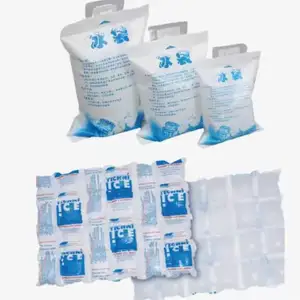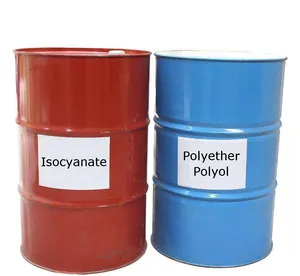

Sodium Polyacrylate SAP Small Non Woven Ice Pack Raw Material Super Absorbent Polymer For Gel Ice Pack


High Quality Supplier Potassium Polyacrylate Resin Strong Supply Capacity Raw Materials For Diaperser
























Polyurethane Base Materials, commonly known as PU base materials, are a versatile and adaptable group of chemicals that serve as the foundation for creating a wide range of polyurethane products. This material is derived from the reaction of diisocyanates or polyisocyanates with polyols or diols, which results in the formation of a thermosetting polymer. Polyurethane materials are known for their exceptional physical properties such as high abrasion resistance, tensile strength, and elasticity, which make them suitable for a myriad of applications across various industries.
The production of polyurethane involves a chemical reaction that occurs under precise conditions. During this process, the components react to form a polymer that is then cured, or hardened, into its final state. This curing process is typically carried out at room temperature or with the application of heat. The versatility of polyurethane materials allows for a wide range of properties—from soft and flexible to rigid and durable—to be engineered by adjusting the types of isocyanates and polyols used in their production.
Polyurethane base materials are for businesses that require a material with specific characteristics such as resistance to wear and tear, flexibility for comfort, and strength for support. They are used extensively in the automotive industry for manufacturing parts such as car seats and bumpers, in the production of furniture and mattresses, and even in the medical field for creating prosthetics and hospital equipment.
Polyurethane Base Materials come in various forms to cater to different needs across multiple industries. Here are some common types:
Polyester Polyol: This type is widely used in rigid polyurethane foams for insulation panels and in flexible foams for cushioning. Polyester Polyol is known for its versatility and is commonly utilized in construction, transportation, and packaging due to its good mechanical properties.
Polyether Polyol: Offering enhanced flexibility and a wide range of hardness options, polyether polyol is often used in applications that require softer materials such as shoe soles, roller skate wheels, and as an additive in adhesives.
Polyether Polyester Polyol: This type combines the attributes of both polyester and polyether polyols for a balance between rigidity and flexibility. It's frequently used in automotive applications and in the production of sports gear due to its durability and comfort.
High-Resilience (HR) Polyol: HR polyols have a more pronounced cell structure that provides superior rebound capabilities, making them ideal for use in bedding products, seating cushions that require high resilience, and sports equipment like mats and protective gear.
Water-Blown (Foaming) Polyol: These polyols are used to produce rigid foams through a reaction with isocyanates. The water-blown method is often found in applications where fire retardancy is necessary or in construction panels where rigidity is key.
Selecting the right polyurethane base material is critical for ensuring product performance and longevity. When making purchasing decisions on Alibaba.com, buyers should consider several factors:
Application-Specific Requirements: Evaluate what the material will be used for. For instance, if it's for products that will be exposed to chemicals or moisture, selecting a suitable polyurethane with the necessary resistance is essential.
Durability Expectations: Consider the expected wear and tear. High-traffic or exterior applications may require a more robust material such as thermoplastic polyurethane (TPU).
Aesthetic Preferences: The color and transparency of the material can be important for certain applications. Whether a buyer is looking for a light yellow TPU for a phone case or a clear TPU for medical equipment, Alibaba.com offers a range of options.
Project Solution Requirements: Services like graphic design or cross-categories consolidation can be pivotal depending on whether the end goal is customization or standardization across multiple projects.
By considering these factors alongside Alibaba.com's vast selection of suppliers and product options, businesses can find suitable polyurethane base materials that meet their specific needs.
When sourcing Polyurethane Base Materials on Alibaba.com, businesses gain access to a global marketplace that connects them with a multitude of suppliers. Alibaba.com offers an extensive selection of Polyurethane Base Materials suitable for various industries—from construction to automotive—and applications like furniture making and electronic component encapsulation.
Alibaba.com simplifies international trade by providing tools that facilitate communication between buyers and suppliers in local languages and by handling order processing and delivery logistics. This platform ensures that businesses can find the right type of Polyurethane Base Material that meets their technical specifications and design requirements without unnecessary hassle.
Moreover, with Alibaba.com's Trade Assurance service, businesses can shop with confidence knowing that their payments are protected until their orders are fulfilled to satisfaction. This commitment to security underscores Alibaba.com's dedication to providing a reliable environment for businesses seeking high-quality materials while supporting their growth into new markets worldwide.
Polyurethane base material is a type of polymer that consists of a polyol and a diisocyanate. It is known for its durability, flexibility, and resistance to wear and tear, making it suitable for various industrial applications.
The density of polyurethane base material determines its strength and durability. Higher density PU can withstand more substantial impact and load, while lower density PU may be more cost-effective for less demanding applications.
Yes, certain types of polyurethane base materials are formulated with UV stabilizers to protect against degradation from sunlight, making them suitable for outdoor use.
Yes, there are eco-friendly options that use bio-based materials or have reduced isocyanate content. Suppliers may offer features like recyclability or biodegradability.
The right hardness of polyurethane base material should correspond to the application's specific requirements. Softer grades are better for applications requiring flexibility, while harder grades offer greater resistance to abrasion.
Polyurethane base materials are used in a wide range of applications including automotive parts, industrial machinery, medical devices, consumer goods, and building materials.
Color customization is often available. Suppliers on Alibaba.com may offer a selection of colors that can be matched to your project's branding or design requirements.
Temperature can influence the flexibility and strength of polyurethane base materials. Some grades are designed to remain stable across a wide temperature range, while others may become softer or more rigid at extreme temperatures.
Common additives include flame retardants, stabilizers, blowing agents, and fillers. Additives can enhance certain properties like thermal insulation, fire resistance, and impact strength.
The right choice of polyurethane base material can significantly impact a product's life cycle by providing durability and extending maintenance intervals. For example, additives may protect against degradation from chemicals or UV exposure.
Suppliers often provide samples upon request so businesses can evaluate the material's suitability for their application before committing to a bulk purchase.
Safety considerations include using appropriate personal protective equipment such as gloves when handling chemicals and ensuring proper ventilation during processing. Always follow the manufacturer's safety guidelines.
Open-cell polyurethane base materials have interconnected voids that allow air to pass through. Closed-cell materials have less space between particles and do not allow air flow but offer higher insulation efficiency.
Disposal methods vary depending on the type of PU. It is recommended to check local regulations for proper disposal guidelines, especially if the material has come into contact with hazardous substances.
Certifications can include ISO standards, safety data sheets (SDS), or industry-specific certifications. They verify that the materials have undergone testing for safety and quality standards.
Project solution capability means that the supplier has additional services such as graphic design or cross categories consolidation that can help businesses find comprehensive solutions for their projects.